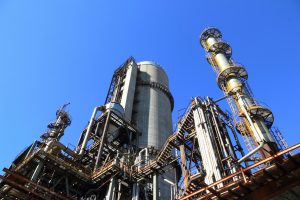Cement, textiles, shipping, and power sectors face shutdown risks as furnace oil prices surge over 80% under new fiscal regime

ISLAMABAD, July 3 — A sweeping hike in furnace oil prices—driven by newly imposed petroleum and climate support levies effective July 1—has triggered alarm across Pakistan’s industrial and energy sectors. The Oil Companies Advisory Council (OCAC) has warned that the move could cripple vital industries and destabilize domestic refining operations.
Under the Finance Act 2025, the government has levied Rs82,077 per metric ton as a petroleum levy and an additional Rs2,665 per metric ton as a Climate Support Levy on furnace oil. This combination pushes its price up by more than 80%, a cost increase so steep that OCAC believes it will render furnace oil usage economically unviable for major industrial players, including cement, shipping, textiles, glass manufacturers, and independent power producers.
The expected collapse in domestic demand is already raising fears of industrial shutdowns, particularly where no alternative fuels are readily available. Independent Power Producers (IPPs), many of whom rely on furnace oil during peak demand periods, are bracing for operational setbacks and further pressure on power tariffs—despite recent renegotiations aimed at easing consumer burden.
Refineries, too, are caught in the crossfire. With domestic buyers retreating, they may be forced to export furnace oil at a loss, exacerbating financial strain on an already struggling sector. The disruption could also ripple through supply chains, affecting employment, production continuity, and energy security.
OCAC argues the levies contradict the government’s commitment to boost domestic manufacturing. Instead of enhancing tax collection, they warn, the sharp drop in furnace oil sales may shrink sales tax revenues, undermining fiscal goals while damaging competitiveness.
The advisory council has formally appealed to the Special Investment Facilitation Council (SIFC), urging it to intervene and recommend withdrawal of the levies to avoid a broader economic setback. With sectors reeling and costs mounting, pressure is building for a policy reversal before long-term damage becomes irreversible.
 Radio News Network Radio News Network
Radio News Network Radio News Network
